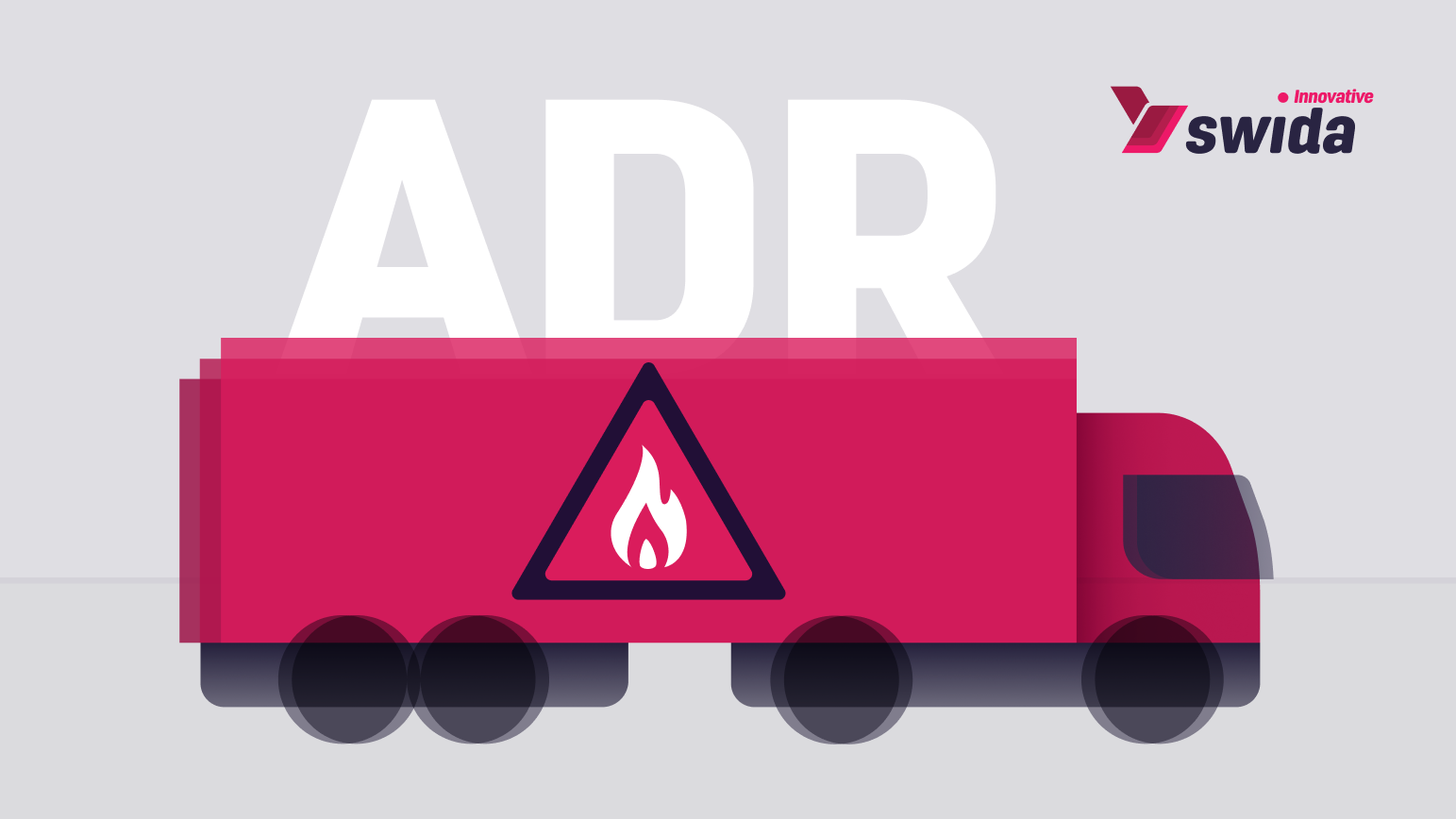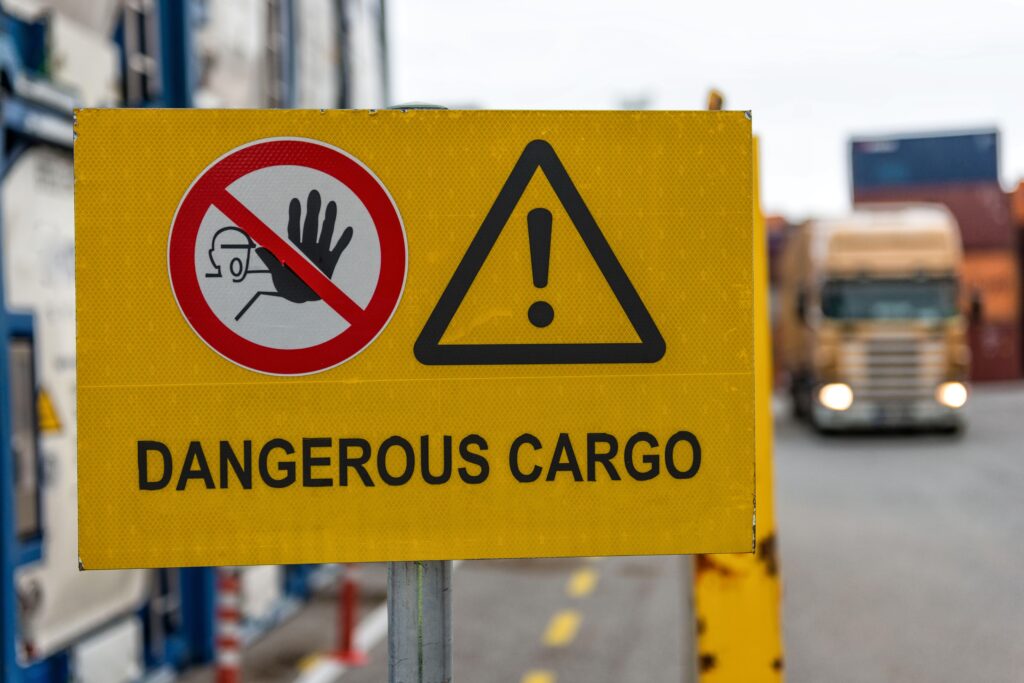
Safety and compliance are paramount when transporting hazardous materials. ADR (Accord Dangereux Routier) cargo encompasses a wide range of dangerous goods, the transportation of which requires specific rules and processes.
SWIDA Innovative is an experienced provider of express road transport solutions, specializing in the most critical and complex shipments. We understand the nature of handling ADR cargo to the highest satisfaction of our customers, and the safety of the whole transportation process. In this article, we will dive into the key aspects that one needs to be aware of when transporting ADR cargo.
Dangerous cargo transportation has been regulated by ADR law since September 1957 by the European Agreement Concerning the International Carriage of Dangerous Goods by Road. When it comes to the rules for classification, it defines nine classes of individual types of goods. These classes represent:
Gases, explosives, flammable liquids, flammable solids, oxidizing substances, toxic substances, corrosive substances, radioactive materials, and miscellaneous dangerous goods.
It is a shipper’s responsibility to disclose the hazardous nature of transported goods.

ADR regulations are organized into two primary annexes: Annex A and Annex B.
Annex A focuses on the packaging and labeling requirements for dangerous goods during transport. The regulations in Annex A stipulate that dangerous goods must be packaged in strict accordance with ADR guidelines tailored to the class of goods being transported. This packaging is designed with the utmost care, ensuring that it can safely contain the goods even in the event of an accident or leakage.
Packaging and labeling also emphasize the importance of clear and accurate labeling for dangerous goods. Hazard symbols and essential information must be prominently displayed on the packaging. These labels play a crucial role in identifying the goods and informing emergency responders about potential hazards.
Annex B sets out the requirements for the vehicle used to transport dangerous goods. The vehicle must be designed and constructed in a way that minimizes the risk of accidents and leaks. It must be equipped with the appropriate safety equipment, such as fire extinguishers and spill containment equipment.
Last but not least, goods must be operated in a safe and responsible manner. This includes taking precautions to avoid populated areas, and sensitive areas and driving carefully in extreme weather conditions.
When it comes to paperwork, ADR road cargo transportation has very strict rules to follow. SWIDA Innovative makes sure that we provide our carriers with valid documents and emergency instructions. Drivers hold an ADR license for the carriage of dangerous goods as well.
To transport ADR cargo, a safety data sheet (SDS) is needed. This is a document containing information such as the properties of a dangerous cargo, and environmental hazards related to accidents that might happen. SDS also speaks about protective measures and safety precautions for handling, storing, and transporting ADR cargo.
Get a free price quote
Are you in need of transporting ADR cargo? Contact us now for a quick and free ADR cargo transportation quote within 30 minutes.

In today’s fast-paced economy, a truck on the road is just a commodity. It’s the starting point, not the solution. When your business depends on moving high-volume…

In our last blog post, we discussed the increasing importance of cybersecurity in the evolving landscape of road transportation…

We’ve got some urgent news for all businesses importing goods to France! Significant changes are coming to French customs…